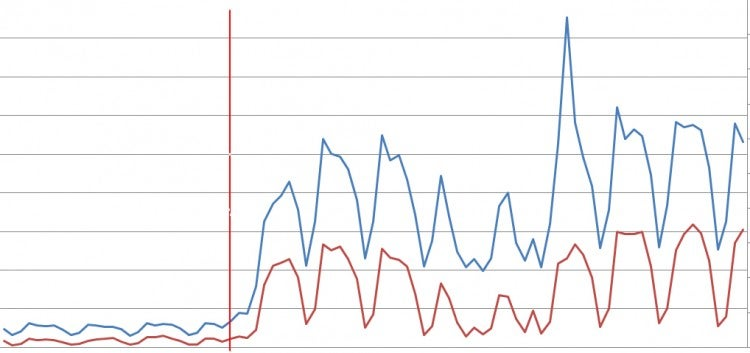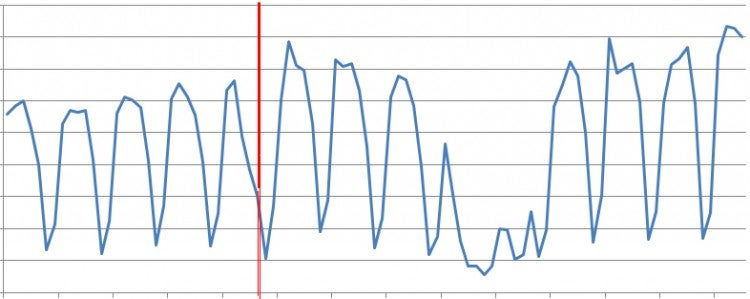The Impact of Meta Canonical Tags in Technical SEO

Technical SEO is one of the key areas of impact for SEO. Along with other focus areas—such as producing quality content and localization, establishing theme-relevant linking, measuring and reporting, communication with stakeholders—it plays a crucial role. Concentrating on Technical SEO initiatives helps ensure that a website is positioned well for crawlers and site visitors alike.
When working on Technical SEO, we attend to such areas as site architecture/structure, page/folder (URL) naming convention, navigation elements, CMS setup, page template layout and coding, indexing and Geo targeting, and so on.
Following SEO Project LifeCycle, we identify technical enhancement opportunity, perform analysis to project impact and present POV, implement changes, measure results, and propose next steps based on data.
In this blog, we’ll take a look at a proper implementation of meta canonical tags and analysis that helped validate impact that the changes had on the site SEO.
Closer Look at a Meta Canonical Tag
A meta canonical is a tag advised for sites as an SEO best practice that helps Google and other search engines better understand which pages contain original content. This simple code element helps improve content authority, inbound-links relevancy for the canonical page, and provides stronger ranking signals for your content.
Implementation of the meta canonical tag is very simple:
__
This code snippet should placed in the
section of the canonical page, and also on the pages with duplicate content on our sites (if you have duplicates – as a best practice you should avoid it in the first place).
SEO-friendly enterprise content management systems like Adobe Experience Manager allow for easy implementation of meta canonical tags on all pages rolled out with the CMS. However, there are instances when smaller web properties are not hosted within a CMS. In such a case, we need to validate and ensure proper implementation of the meta canonical tags.
Case Study: Measuring Impact of Properly Configured Meta Canonical Tags
Let’s take a look at a case where a smaller website initially launched with improperly implemented meta canonical tags. After identifying enhancement opportunity and implementing correct tags, we measured impact of the adjustment by looking at impressions and clicks data, SEO visits, and rankings of canonical URLs in Google.
Measuring Canonical URL Visibility and Clicks
We can easily measure impact on the number of impressions (referring to number of times where canonical URLs were present in search results) and clicks (where searchers clicked on these URLs) by looking at the “Search Query” report in Google Webmaster Tools.
Chart: Webmaster Tools report
While the out-of-the-box chart clearly shows improvement in impressions, we need to export data to Excel and plot impressions and clicks data series to primary and secondary axis, to see impact on clicks better. Quick note on the dip: this was due to seasonality.
Chart: data export report
Measure SEO Visits
Data from the Adobe Analytics platform also confirms an improvement in SEO visits (again, note on the dip – it’s due to seasonality).
Impact on SEO Rankings
BrightEdge SEO Platform provides reporting that allows us easily to identify impact of meta canonical tags implementation on the rankings of correct canonical URLs in SERPs.
Granular reporting allows us to track increase in rankings for non-branded and also branded keywords.
https://blog.adobe.com/media_c2fdb132f8d747237e5ad78485446e18252141c8.gif
Chart: Non-branded keywords rankings
https://blog.adobe.com/media_c5a76e8d3b11c4402ca491bb814158a67bfb9303.gif
Chart: Branded keywords rankings
Closing Thoughts
Technical SEO is an important area of impact and SEO managers should focus and optimizing websites, such as implementation of meta canonical tags discussed here helps position them better for SEO.


